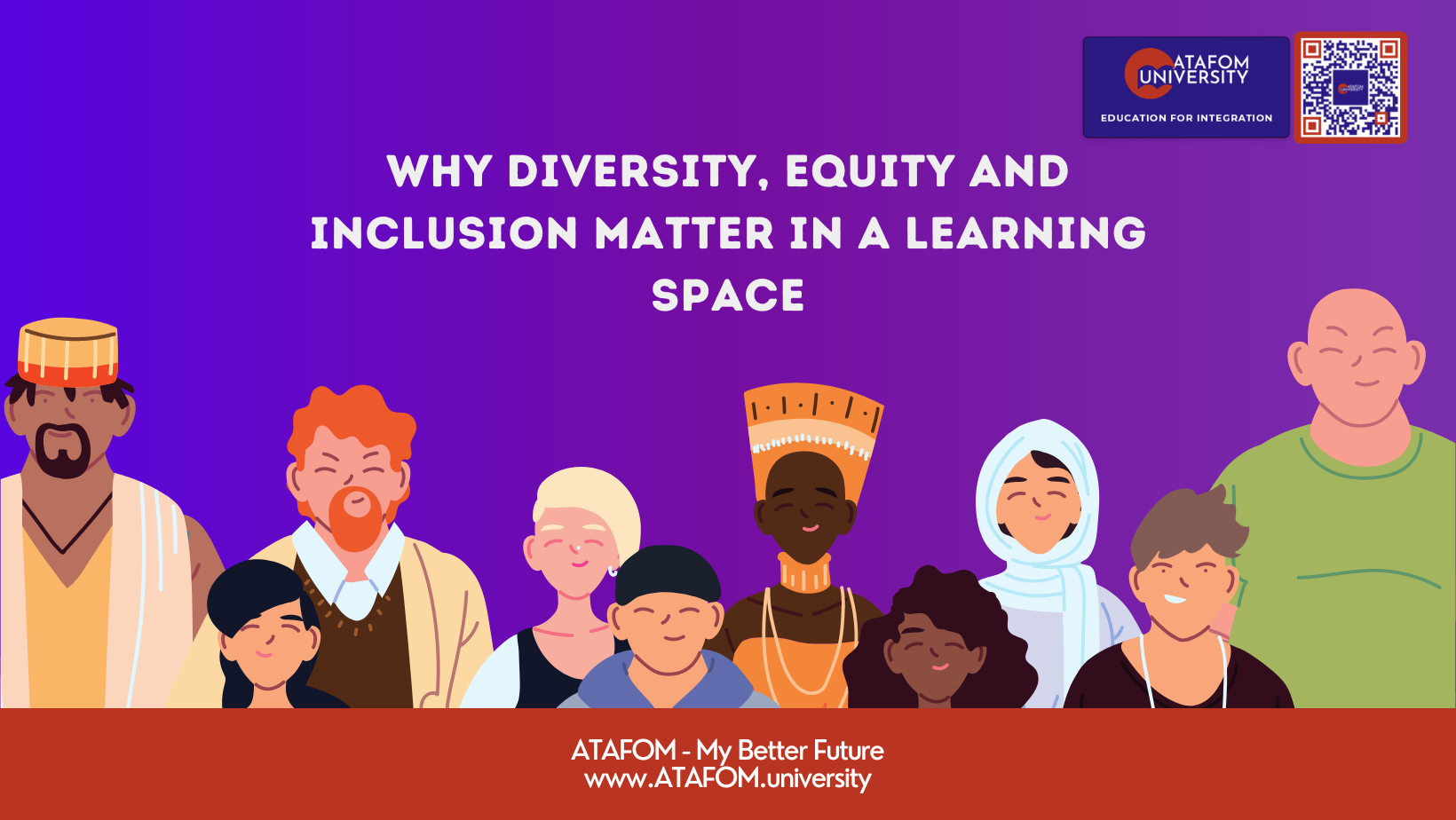More people from different colours, countries, religions and socioeconomic backgrounds are attending college than ever before, making college populations across different countries more diverse than ever. A successful college experience that prepares students for careers, life, and success depends on diversity, equity and inclusion in higher education. The ability to strive for fairness and inclusion is crucial as our society continues to be increasingly varied, ensuring that everyone has the respect and opportunities for success that our country needs. Even though these topics are being discussed more and more, fewer organizations and communities have succeeded in creating truly fair environments as of late. Achieving lasting change may take more time, but keeping the lines of communication open is crucial to getting there.
So what do diversity, equity and inclusion mean in a learning space? Diversity includes all the distinctive characteristics that make each person different. Diversity encompasses a range of beliefs, concepts, viewpoints, and values. The degree to which the group consists of various individuals, viewpoints, or ideas is referred to as diversity in a group setting. A group includes more perspectives the more diverse they are. Race, gender, age, religious affiliation, sexual orientation, socioeconomic status, history of incarceration, and educational background are just a few of the variables that can be used to define diversity.
Recognizing the historical (or contemporary) obstacles that prevent some groups of our population from achieving their full potential is what is meant by equity. To treat everyone equally and justly is to practice equity. Enhancing equity necessitates examining the degree to which institutions’ current structures, operating procedures, and resource allocation practices are reasonable and fair. Understanding the underlying reasons for the differences that exist in our society is necessary for addressing issues of equity.
The goal of inclusion is to create environments where people of all backgrounds can feel at home. Regardless of one’s origin or viewpoint, inclusion is embracing diversity and making sure that everyone has the chance to participate fully.
So what function does diversity, equity and inclusion play in the learning space? It’s simple to view these three as a binary decision between yes and no, but it is complicated, and a student’s position isn’t always obvious. Some people may be sceptical about diversity and inclusion initiatives, claiming that the sole justification for doing so is to stay out of legal problems. However, there is more to college than what students learn in textbooks. The relationships and practical knowledge that students learn on campus can last a lifetime. The importance of variety is visible in how it helps students become smarter, more considerate, and kinder to others.
Even if you don’t go to college, you should still be concerned about diversity in higher education. Unfair impediments to economic mobility are caused by unequal access to education, notably higher education. College graduates make much more money in their lives than their peers who only completed high school. Other advantages include improved academics (there is evidence that varied groups make better decisions), reduced stress during college, and exposure to other cultures, which helps students develop greater empathy for others (diversity teaches us how to handle different situations). So why is diversity in higher education important to anyone? To begin with, it has an impact on both you and everyone else. It prepares students for the real world, creating opportunities to collaborate with people who look and think like them. Diversity, equity and inclusion make students smarter by exposing them to a wide range of ideas and perspectives.
At ATAFOM University International, we deliberately create opportunities to interact and work with people from all origins and cultures as our globe gets more and more international. Instead of erecting walls against differences, we embrace and value them for the potent force that they can be. This entails valuing diverse cultures, races, genders, and identities as forces for perspective-enhancing good. To ensure that everyone is treated fairly and justly and has the same opportunity to achieve as everyone else, ATAFOM University encourages diversity and inclusion for our students, employees, visitors, and neighbours.
Every experience counts and the same is true for every learner. At ATAFOM University International, diversity involves more than merely checking a box. Each person’s experience is impacted by their intersecting identities, and we encourage all students to share their stories outside of the classroom as well. We are also acutely conscious of the possibility that a student’s personal experiences and social context may influence their educational preferences. We assist both online and offline with knowledgeable, sympathetic, and accomplished staff who are authorities in their professions. Check out our website then choose your desired path with the help of our seasoned administrator. Together at ATAFOM University, our diversity creates a vibrant, lovely world community.


